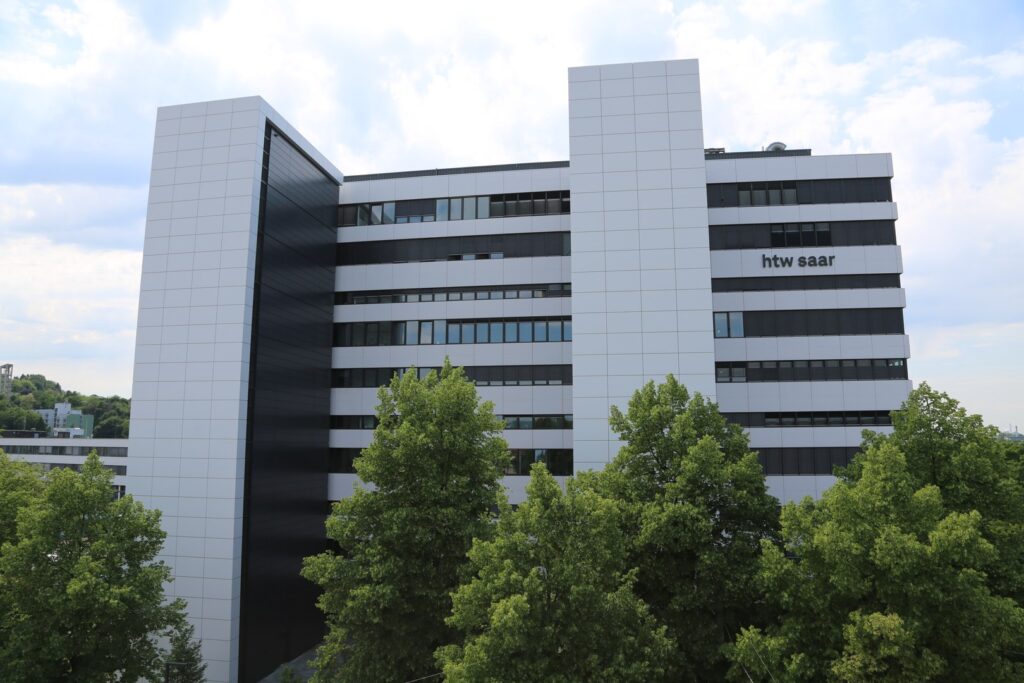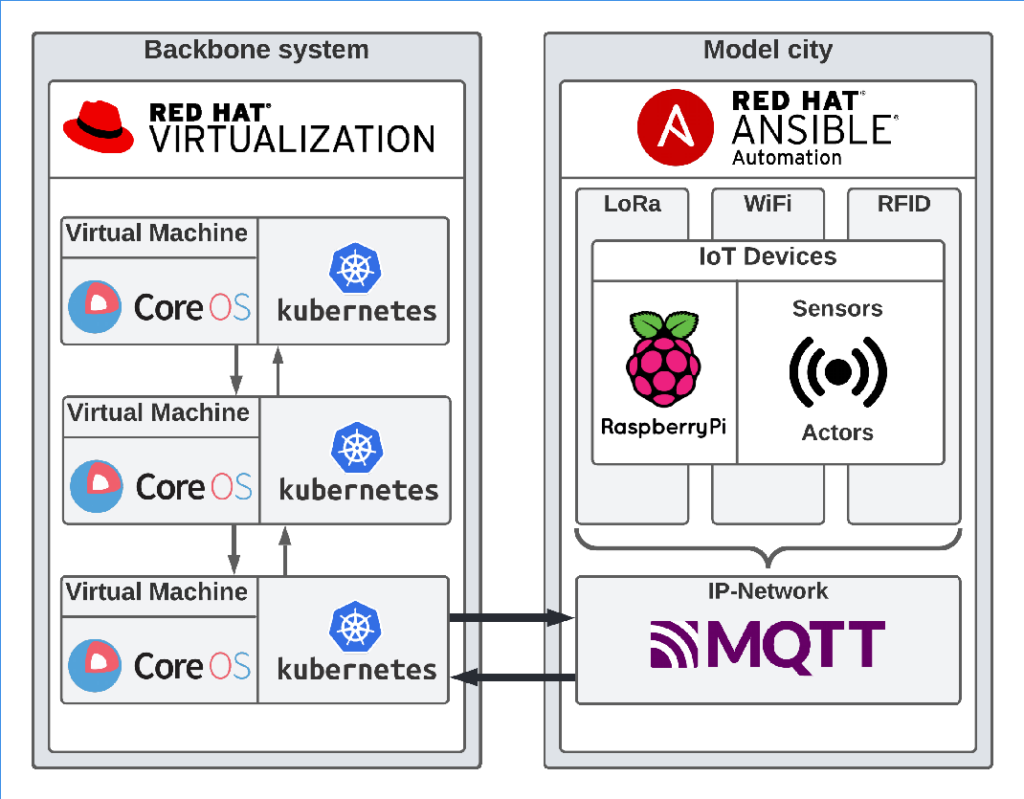
The Distributed Systems Lab offers students a modern platform for projects and theses. Our research and work is focused on the topics of Cloud Computing, Internet of Things and Software Architecture. We believe in providing students with first-hand experience of patterns, technologies and software, that are considered industry standards in their respective domains. In return, this provides us with a solid foundation to carry out research and expand the knowledge of our main areas of work: Smart Cities, Industry 4.0 and Distributed Systems.
Technologies

Kubernetes
Kubernetes is an open-source container orchestration platform designed to automate the deployment, scaling and management of containerized applications. It provides a robust framework for container orchestration, enabling seamless coordination and efficient utilization of resources across diverse computing environments.

Kafka
Apache Kafka is a distributed streaming platform that facilitates the real-time processing of large volumes of data by providing a highly scalable and fault-tolerant messaging system. It allows for the efficient collection, storage, and processing of data streams, enabling organisations to build robust and scalable event-driven architectures.

Spark
Apache Spark is an open-source, distributed computing system, that provides a fast and general-purpose cluster computing framework for big data processing. Wit in-memory processing and a versatile set of APIs, Spark enables the efficient execution of diverse data processing tasks, including batch processing, interactive queries, streaming analytics and machine learning.
Physical Lab
Our physical lab features the CiTe Testbed, an IoT testbed for smart city applications. Powered by RaspBerryPi-Computers and a large variety of sensors and actors, the testbed is a replication of a real-world smart city. Through the use of Edge Computing patterns and ruling standards, such as MQTT and containerized applications, we are able to implement real-world use cases such as Smart Parking, infrastructure monitoring or energy management. The knowledge gained from implementing and observing these applications is used to formulate best-practices and make propositions for how Smart City architecture as a whole can be structured and put into effect.

